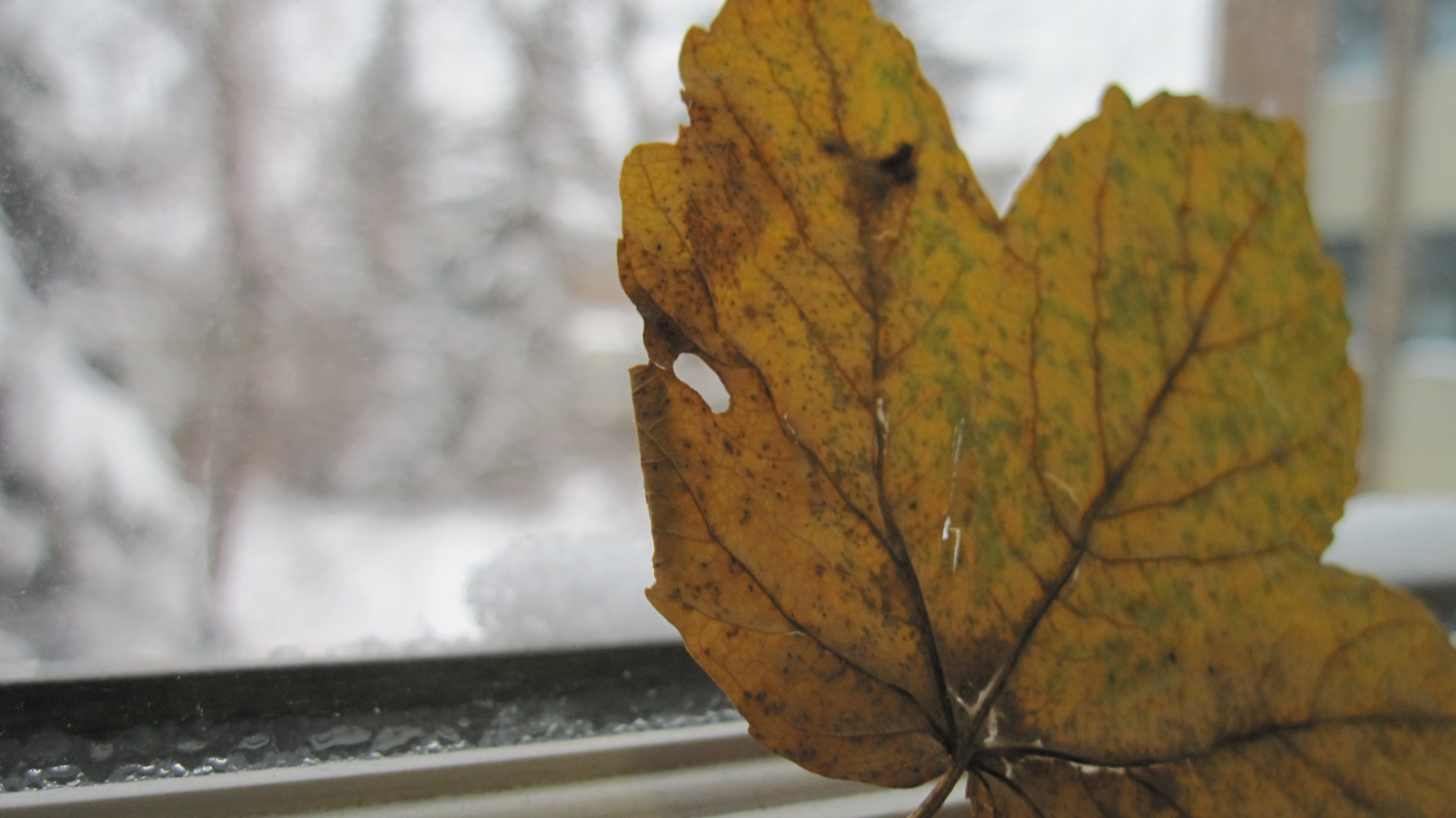Snow. Too much snow. I had my second snow day of my life a little while ago, when the roads around Red Deer were decided to be too dangerous to travel on. As a result, my Monday turned into a lovely Saturday, leaving us only two days of classes in the final week of the semester.
Canada is cold. No, it’s not frozen over all year round, and we don’t live in igloos, but when winter comes, no one can deny that it really is cold. Walking back from my car the other night I could feel the temperature quickly taking it’s toll on my body, despite my winter coat, and gloves. Looking into the dark woods beside the the road, I wondered how long someone would last in this weather without shelter. If they kept walking, maybe a day? I’m not sure if someone would make it through the night unless they did jumping jacks all evening. If they didn’t keep moving I doubt they would last more than several hours. I imagined myself huddled under some tree in those woods, trying to keep warm. I’ve often thought that drowning would be one of the worst ways to die, or burning to death, but dying of cold is certainly up there. Even the thought of being out all night made me hurry even faster to get inside.
Winter in Canada is no walk in the park. It would be much easier if people never had to get anywhere. However, for anyone driving, Winter makes sure you don’t avoid it. Between scraping fiercely at the windows and shivering in the seats, waiting for the heat to kick in, driving is a blessing you pay for dearly. Yesterday, while driving out my grandparent’s house I heard on the radio that the temperature that morning was -29, apparently feeling like -41 with wind chill. The day before that I had worried about my car as its engine sputtered to a start, ice on both sides of all the windows. Roads around town are lined with small walls of snow that the snow plows have left after they have gone through. Recently I’ve seen dump trucks and trailers around Red Deer, hauling huge loads of snow out of town. I’m sure at the other end of all those trips is the perfect place for someone to build a giant igloo!
Memories of driving in Pakistan are so different. I can remember my dad trying to park our car under the shade of a tree, if possible, in an effort to keep some of the midday sun off the car. When we would get into the car the metal buckles on the seat belts would almost burn our hands if we touched them as we shuffled our bottoms into the seats. For a brief moment there would be a frantic fight, as my siblings and I would whip the windows down as fast as we could and stick our heads out, trying to catch even the faintest breeze of air. That was Hyderabad.
But here I am, in Red Deer, in December. I joke with my friends, telling them that every winter my calling to go overseas becomes louder and clearer. I dream, but, for today, this is where I’m supposed to be – avoiding every opportunity to go anywhere other than my flat. Every country comes with its own set of trials. There’s not a lot of sense in wishing I was somewhere else, going through the pains that come with another place. Just like Jenna and the Troublemaker, I would probably end up coming back to my own ‘bag of troubles’ realising I’d rather not have anyone else’s.
Last night it was -38 in Red Deer. It’s amazing what such a small line before the temperature does. If it wasn’t for that silly little ‘minus’, I could be out in shorts and flip flops, probably complaining that it was a little too warm for my liking.

